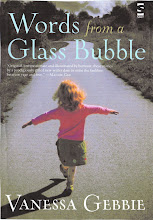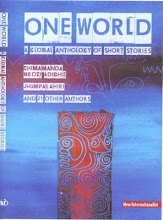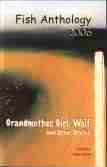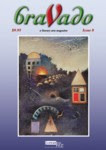However. Let’s put this in context shall we? 20 years since Clapham. A writer who suffered Post Traumatic Stress Syndrome, and has struggled with it on and off ever since. And who acknowledges openly, here, that it still gets him.
One direct result of having this stuff up here, stuff I posted because he’s a good writer who has a book out with my publisher, is that he received hate mail. Anonymous, of course. Jesus, people. (But. Whoever sent the hate mail. A pound to a penny you aren’t, and never will be, a writer. Or even a shadow of a writer.)
 Pigs Might....
Pigs Might....Today, we return to the Collection. To his writing processes. To the themes he explores and why. To a writer’s voice and what that is, what it means for his writing. And yours and mine. But I wanted to start with the flash process. Because he taught me that, and without it, I probably wouldn’t be writing now.
V: You have told me that quite a few of the stories in this collection were written as flash exercises, then edited/expanded. Can you explain the power of writing in this way?

A: Four of the seventeen stories are prompt-driven "flashes" even though one is 3.5K. However these are relatively old stories. I get a lot more finished work from flashes these days. The answer is tricky (in a few paragraphs)
V: Oh dear…
A: I believe almost absolutely that the "only" way to write truthfully is using the unconscious/subconscious. If I am not involved with day to day teaching and "merely" writing then an idea would come (actually idea is too strong, too definite)... a 'THING' would come, an image, a snippet of dialogue, a sudden thought or fear or smell or recollection, a what-if, a line of text, or perhaps a snatch of poetry, even a view, a sunset... something "tweaks" me, or calls to me, or "sticks to the soul"
I've taught that the worst thing to do is to grab at that thing. I could explain but we'd be up to 10,000 words before I got close...
You have to make sure it isn't lost (notebook, but better a whiteboard over your desk) and refuse to write about it. You wake the thought up every day, stir the soul-mix, waiting for the real reasons the "thing" tweaked you to start to gather momentum or react chemically
Eventually the thing swells up and demands to be written, preferably without much conscious thought.
I believe this is much nearer the deep truths in us.
Al the above is fine, but ongoing, teaching (and writing with other writers) how do we get a story out tonight, and how is that story NOT conscious?
Via flashes.
If we have a set of prompts, maybe 12, maybe 20 and we read, react, AND we only have 45/60/75 minutes to respond we don't have time to "consider" and become conscious. Instead we react and often we are wonderfully surprised by the inventiveness of the half-hidden psyche.
I dislike (you could say detest) "conscious, deliberate, planned, "clever" writing. I loathe self-conscious, controlled, titrated language. I believe in blood, mistakes, Freudian connections that intrude, not ones I plan to make.
Every story in this collection was written in one blasted sitting. Only one story I have ever written (and did well) took two separate sittings. Interesting that of all my prize winners this was the one that my editor at Salt DIDN'T like. (Well spotted!)
I believe flashing is a false (but clever) way of mimicking the brewing process that I use when I have lots of time to stew a story. No time, trust the gut - how did THAT connection come? Wow, why that thought, that memory?
When I look at my successful flashes I sincerely believe that I would not have found 2% of them by TRYING. They had to erupt, emerge, explode, swell out, escape. Even if I had found the same ideas/plots "deliberately" I am certain they would have produced inferior stories.
When you interview “me” there’s a problem (apart from me not shutting up.)
V: Hmm. Is that it on flashing? Or is there…
A: Nah. There’s more.
I am one thing when writing, say, “From the Tenth to the Eleventh on the Occasion of My Passing.” That is dark, about ‘do not go gently’, very much a man-thing story, heavily poetic, sensual, sexual. That’s me, the writer and the person (if I get the chance!) and it’s me at the junction of sex and death. Eros-Thanatos etc, God, Freud woulda LOVED me!
Then there’s “me” learning to write and writing the crime books. Then, I thought they were just literate crime books, but in fact they reek of sex-death and I’m sure a good critic would see “me” and my voice at work already.
But then I was “alone” writing at home, not interacting on the internet and so on.
A third “me” is me running an on-line writing group, nice and safe (like Boot Camp where I own the keys) and sometimes out there “preaching” until I get booted, usually after about three months.
There might be a fourth me. This me is trying to energise 15-40 writers to get to fucking work so maybe I post a set of prompts, poems, snippets, single “spiky” words… that’s fine, but then I also feel I “have to” write a flash myself to show yes it can be done.
So I mean there’s me writing-writing, fired up with something important (like maybe if I closed down the teaching side and wrote a novel) and there’s the me whose writing is a side-effect, almost an accident of geeing others up.
My “preferred-mode” to generate deep meaningful stories is to take cues like ideas, snippets, photos, thoughts, and “store them” (often a long time) and let the fester. Here I’m priming the sub-conscious until eventually a story “swells” and forces its way out.
Prompts and rapid writing is a “clever” imitation of that process. If we grab at a list of open-ended prompts, especially when many are from poems, we trigger a kind of fast attack into the deeper parts of consciousness.
If you and I read a set of prompts, provided we do not think too hard then we will “go different places” and produce very different poems, flashes or stories. Those ROUTES are out psyches interacting with the prompts. You have a different history, different sensibilities, so jokingly, I might link “raspberries” and “motorbike” and get onto one of my pet tracks (sex-death) whereas you might think of a Welsh childhood, the boy who owned the Triumph, your first crush. The key is being loose and open to the unconscious.
It works, occasionally brilliantly, but would the eventual story be different if such prompts partly-triggered a memory, we wrote something on our white-board and allowed it to stew?
So flashing we get a neat, placeable story, “a first crush”. But maybe the memory is false. Maybe motor-bike man was a rapist or a paedophile or we did something horrible and he died. Such repressed memories aren’t likely to pop out in a 90 minute deadline flash exercise.
So maybe fifty per cent of my work is just work-work. Yeah they are stories and I can place them, but they aren’t always the BIG themes, the deep and heavy. So I guess I kind of keep popping out neat meals with a reasonable sauce, but rarely have the time to prepare a banquet.
My “day-job” gets in the way. In my case it’s writing-related. Maybe think of it as I’m a journalist and rarely have time to write fiction. OK the journalist stuff is OK and sometimes more than that, but it’s not Nathan Englander or Saul Bellow.(pic: Mr and Mrs Alex K at the Salt party, and he seems to have a flying saucer about to enter his head.)
V: If I gave you the opportunity to talk about one more writing thing, what would it be?
A: THEME
When I think “my drivers” there’s an easy answer and a fuzzier, more real one. I now think my main drive is to understand who I am, what I am. I am a VERY unpopular guy, hated in many places and yet I have one desire, to write beautifully, to help others to write as well as they can. Those who have seen that, those who KNOW me, know what I am.
I received an email a few days ago, some sicko telling me I’m fifth-rate and I should have died in the Clapham Crash. Receiving that I realised I still have post-traumatic stress, twenty years on. I couldn’t move for ten minutes. Had the writer been in front of me I would have killed him gladly. I would have squashed him like a bug.
Maybe I am fifth-rate but I’d defy anyone to tell me my story Ballistics is not top-drawer. Do I believe I could write a Booker novel? I don’t think I could, I know I could. But I don’t like a lot of Booker stories, so…
But to write that novel means saying goodbye to a lot of people, and I really mean, “Don’t phone me, don’t email.” I work obsessively, compulsively. I have never touched drugs because if I did I’d be mainlining heroin within a year. That’s why I would never smoke. I’d be an eighty-a-day man if I did. (Yuck!)
You asked me does teaching “spoil my writing”. No it doesn’t, but it gets in the way, takes a mass of time. It’s 12:56 and I haven’t written a word of fiction today (yet).
Not that I wander, eh?
V: No. No. Of course not....
I should be religious. I FEEL religious, heavy, deep, philosophical, wondering. I sometimes think of things I see or hear as “God Leaking,” and earlier, when we talked I tried to articulate this sensation I have that I’m slowly beginning to understand (and that I won’t be allowed to actually get the final ah-hah! moment.
So my drives? I’ll send you a picture, this bright, bright kid (highest-ever 11-plus score recorded in Wales) (98…) then this slumping, frightened teenager… What the hell happened between him and him? I look at these two selves and do not believe they are me. That’s not clever words. I mean that exactly. They are NOT me.
In a recent radio interview they played my voice, some archive. I “knew” it was me, but couldn’t FEEL it was me.
This is where I am now, trying to understand time-lines, destiny, how people become something else, how people who love can be hated, how people full of hate are apparently loved, what “being” is. I have a strong instinct that I don’t have all that long. That pisses me off because I was just about ready to start working things out.
Maudlin fucker.
Whatever I write, whether it’s a simple flash, something comic, or another crime book because I need the money, all that’s underneath (now) is me trying to understand my life, or more fancifully, “life”.
I may or may not be understood. I don’t care all that much, not if I understand a little more.
V: Right. THAT’s the core of it, I think. It’s been said that writers behave like children round their teachers. Treat them like parents. Maybe. Dunno. But what parent sits back and lets their child bugger about wasting time when they know they are doing something so so so wrong? So this one tries to explain. Over and over…. Like the post below. Given for nothing. One of hundreds of articles all over the place. You can agree, or not agree. You can’t take away the passion, can you? And isn’t that what’s missing from SO MUCH WRITING???
I found this great little semi-article on a place called Writer’s Dock. I am copying it here. I doubt whether it will be read there, much. Here, it may be. I am always being asked about VOICE. What is it? and here is an answer.
VOICE and THEMES
John Updike has a cultured, fairly posh American voice (his diction/accent) and is slightly sad/cynical, and dwells on love/non-love marriage screw-ups, death etc. it's "what he is" and how he comes across. His voice.
I am often "dark", lyrical, "catholic", sexual and like prose that flows line Golden Syrup off a spoon. And I like Welsh as a song. I dwell a lot on death, old age, sex. That's my voice. I don't want to tell stories. More I want to understand what it is to be human.
George Saunders is ironic, satirical and has a faux US big-business/mindless voice. he wants to talk about the little man v big business.
Jane Austen is clear, clean, British, precise and genteel, almost accentless and "well-bred" if not "posh".
If people had read a lot of your work, scattered among the words of others, then they pick up your latest, they would recognise it as part of an ouevre, same similar sounds and word choices, same rhythms, same YOU behind it.
Character dialects, patois, accent, "voice" is not the writer's voice.
For me there are two large aspects to voice, one is what you like to say, and the second is how you say it.
If I say he is a dark author, and she writes "light" and then there are two manuscripts without the author's name attached, you would be able to decide which one was written by him, which her.
I like slightly unusual sentence structures. Many writers would not end the above sentence with "which her." I use a lot of emphasis, italics in prose, bold or caps in messages. I'm a very animated speaker. Had I been religious I think I'd very likely have been one of those stentorious preachers in Chapel who cries out, "There is someone here who has SINNED! Cast out the sinner!"
My tribal origins, my religion, my parents, my siblings, Georgie Williams, my best mate, Isobel who kissed me in the sweet shop (even though she was going out with Joesph Healey), my teachers, the Latin Master who still wore classis robes, Mr Fisher who held his trousers up with string and threw chisels, the nuns from my earlier life, Father Maloney the one-eyed priest, Uncle Ed who ran the children's home, my Corporal and Sergeant in the RAF, my kids in a backwards feed, Shakespeare, Dickens, Mickey Spillane and the BBC News have all influenced me, giving me words and sounds and feelings until I have become a unique voice.
That's not pompous BTW, we all have one, if we choose to use it.
And that long para above, that's very "me". I often "list" in stories, use rhetoric tricks (eg the three-mentions trick with the third emphasised, such as I will not lie. I will not lie. I will not lie!)
So a writer who has "settled into himself" starts to have an "ID" (see how often I use quotes!) a sound, a way of expression.
Do we say "he was sat" or "he was sitting"? Do we have a wide vocabulary or a narrow one? Do we use Anglo-Saxon based words, or more Latinate words; a lot of slang or great formality? Do we use contractions or run away from them? Is there a sameness, similar sentence lengths, or are longer sentences interspersed with little "PINGS"?
SUBJECT MATTER
Does a writer write Chick-Lit? Does he or she like immediately consumable stories so light you can't read them outdoors? Does he like to write in a way that requires a second read? Does he write a single layered work or one that has a readable first layer but hidden depths? Is he ironic or sarcastic, sad or happy, optimistic or despairing?
All these I mean in an "overall" way. if we look at my last 100 stories and someone else's last 100 stories, each would entertain in a different way.
You might say, "I read Tomkins when I need to cheer myself up. I can't be doing with Kafka. Two days of Kafka and I'm looking for a rope."
The point is that the writers have an overall feel about them, a mood created, a subject matter debated.
I am fascinated by the meeting of sex and death (eros-thanatos) and I'm striving, reaching-for, and I think a lot of my work is "achey" with a sometime spiritual undertone full of destiny stuff, fatalism, a slow fall away to a dark ending. Another writer might be seen as "always full of the joys of Spring" whereas one of mine character would tell her to wake up and smell the coffee!
Within a single writer there may be a lot of variety of voice, or not. All Agatha Christie's sound the same? All Dick Francis books do!
We might, because of mood or subject matter, try to write happy when we are fundamentally sad, or write dark when fundamentally our outlook is usually rosy. But chances are a skilled reader would still "spot" us. There'd be something that you could boil down to that is me, or you, Raymond Chandler, or Saul Bellow, or Carver, and as said above, Hemingway.
You walk into a bar, and over the various sounds, you hear a voice telling a joke, or having an argument. Even before you're close enough to actually recognise the specifics of his voice (little v) something in the music and weight and lilt of that voice says to you, "Oh bloody 'ell, Bill's off on one again!' Bill signs his speech but doesn't know it. We sign our stories, and may or may not.
THE END







.JPG)























No comments:
Post a Comment